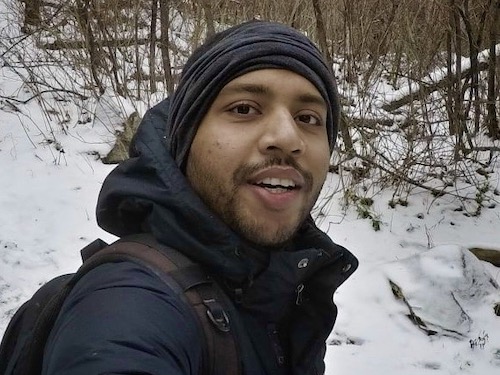Meet Inayat Singh

I’m a data journalist with CBC News Network investigative unit. I’m based in Toronto. I work on national Canadian stories, and projects that are more long term. These are investigative or enterprise projects that take a little longer to research and report. I specifically focus on data and statistics to tell my stories.
What inspired you to be a journalist?
I wanted to be really good at something, or do something that I was really good at. I went to an Indian school, I’m an Indian, and I was really going to follow that stereotype of becoming an engineer because everyone around me was doing that. But, it wasn’t really a passion. What I really liked was writing and that was the one thing that always set me apart. I realized that I wanted to follow that passion and see where it took me.
What are the biggest lessons you have learnt in your career?
There’s a lot of lessons. But I think one of the biggest ones and this is especially coming up during the pandemic, is to learn that work, while important, is not the whole person. So, in journalism, I think especially we see how our work, our jobs become, [a] big part of our identity. That’s how we define ourselves. For me, I came to Canada to be a journalist. So it’s the whole reason I’m here. But what I’ve been learning is that I should not lose sight of the big picture. Because you need to always be thinking of your larger life goals, which are not always just career goals.
Toughest challenges and how did you overcome them?
My toughest challenge was mainly getting to a place where I wanted to be in journalism. So I’ve been very lucky in, in the sense of, after Carleton, J-school, getting a job and working full time in journalism. But it’s not always been exactly where I want to be.
Before Toronto, I was the social media editor at CBC in Winnipeg, which is a good job, but it’s not your traditional kind of reporting position, you’re an editor. You will find that you get advice to go to smaller markets, but then making the shift back to Toronto is actually harder than it seems because you’re competing with local talent.
There isn’t always a clear path in this industry. So you have to address it by really getting face timed with managers in the area where you want to be. So this can be through working with them on projects, or even job interviews that you know, you don’t get or even at you’re not going to get, they’re still valuable in terms of getting that face time and you need to be like very deliberate about sitting down but the people in managers, who do you want to work with and building those connections.
Do you often feel pressure? How do you cope or how do you address mental health challenges in journalism?
It’s only been difficult during the pandemic. Especially keeping work and life separate, because it’s all happening in my apartment. But so I guess there’s no easy answer. And especially, you know, mental health is still not being talked as much as it should be in this industry. I think everyone copes differently. I think overall, like I said before, it helps to keep your eye on that bigger picture. So just, you know, always remembering that your identity is not just your job, your full person with other things and people in your life, and so many feeling the pressure at work, you remember that it’s still just work. It’s not everything else in your life.
What advice do you have for those aspiring to go into the media industry?
My advice is to listen to a lot of advice. Specifically, listen to advice from people who are like you. For example, if you’re a person of colour, what I’ve learned is you need to hear advice from other people of colour. If you’re a person of colour, in a specific part of the country, or from a part of the country, you need to listen to advice from someone like that, who is from that area, who understands you and the challenges you face.
Because I feel like we get a lot of advice in journalism. A lot of advice on how to get your foot in the door, how to move up in your career. But the outcomes and the journey and opportunities for people from different backgrounds is very different in this industry. For example, in J-school quite frankly, if you’re hearing advice from professors, you’re hearing advice from people, who are mostly white and mostly middle class. A lot of the advice doesn’t really work for people who are not from that background. There’s not one set of rules that sort of work for you.
So, you need to listen to a lot of advice, but you need to be very deliberate about who is giving up that advice and follow it. For example, when I was in J-school, one big piece of advice, advice was move to smaller markets, which is something I did but the even advice to like
really small markets like small towns like rural New Brunswick. That’s actually significantly more difficult for a person of colour to do, than vice versa and those challenges nobody will ever tell you. When I was in the industry that I realized oh like moving Winnipeg has different consequences for me.
You need to choose who you’re hearing that advice from.
Interview conducted by JSOC second year representative, Jasdeep Kaur.